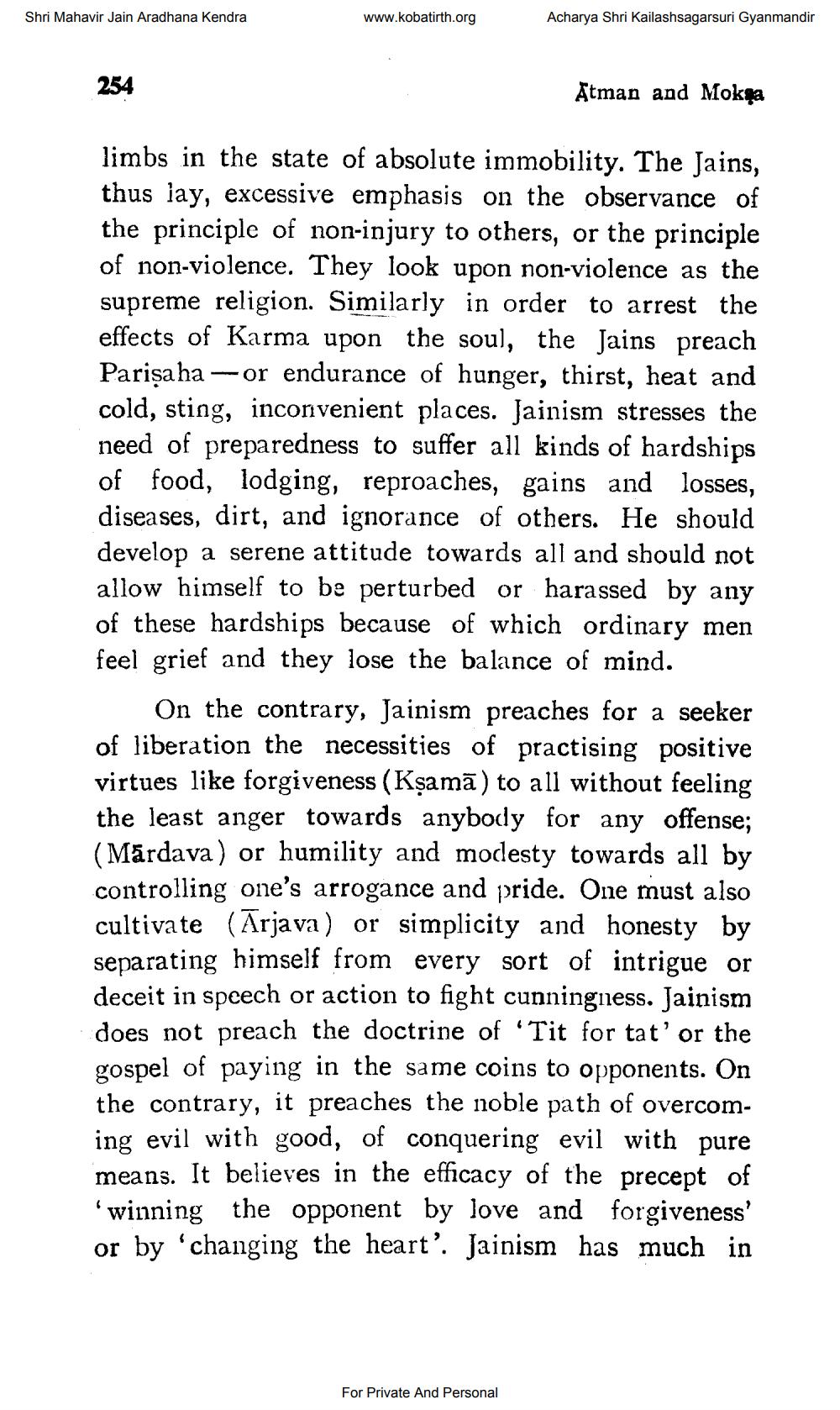________________
Shri Mahavir Jain Aradhana Kendra
www.kobatirth.org
254
Atman and Mokaa
limbs in the state of absolute immobility. The Jains, thus lay, excessive emphasis on the observance of the principle of non-injury to others, or the principle of non-violence. They look upon non-violence as the supreme religion. Similarly in order to arrest the effects of Karma upon the soul, the Jains preach Pariṣaha-or endurance of hunger, thirst, heat and cold, sting, inconvenient places. Jainism stresses the need of preparedness to suffer all kinds of hardships of food, lodging, reproaches, gains and losses, diseases, dirt, and ignorance of others. He should develop a serene attitude towards all and should not allow himself to be perturbed or harassed by any of these hardships because of which ordinary men feel grief and they lose the balance of mind.
Acharya Shri Kailashsagarsuri Gyanmandir
On the contrary, Jainism preaches for a seeker of liberation the necessities of practising positive virtues like forgiveness (Kṣamā) to all without feeling the least anger towards anybody for any offense; (Mārdava) or humility and modesty towards all by controlling one's arrogance and pride. One must also cultivate (Arjava) or simplicity and honesty by separating himself from every sort of intrigue or deceit in speech or action to fight cunningness. Jainism does not preach the doctrine of 'Tit for tat' or the gospel of paying in the same coins to opponents. On the contrary, it preaches the noble path of overcoming evil with good, of conquering evil with pure means. It believes in the efficacy of the precept of 'winning the opponent by love and forgiveness' or by 'changing the heart'. Jainism has much in
For Private And Personal




